Core Faculty
Information Box Group
Sonia Anand
Faculty of Health Sciences
Associate Vice-President, Global Health
Professor, Division of Cardiology
Medicine, Cardiology; Health Research Methods, Evidence, and Impact
View Bio
Dr. Sonia Anand is a professor in the Department of Medicine, and the Director of the Population Genomics Program, at McMaster. She is also a senior scientist at the Population Health Research Institute at Hamilton Health Sciences. Dr. Anand holds a Canada Research Chair in Ethnic Diversity and Cardiovascular Disease, and the Heart and Stroke Foundation of Ontario/Michael G. DeGroote Chair in Population Health Research. In 2010, Dr. Anand was named among the top 100 women by the Women’s Executive Network for her accomplishments in research and medicine. Her current research focuses on environmental and genetic determinants of vascular disease in populations of varying ancestral origin, women and cardiovascular disease.
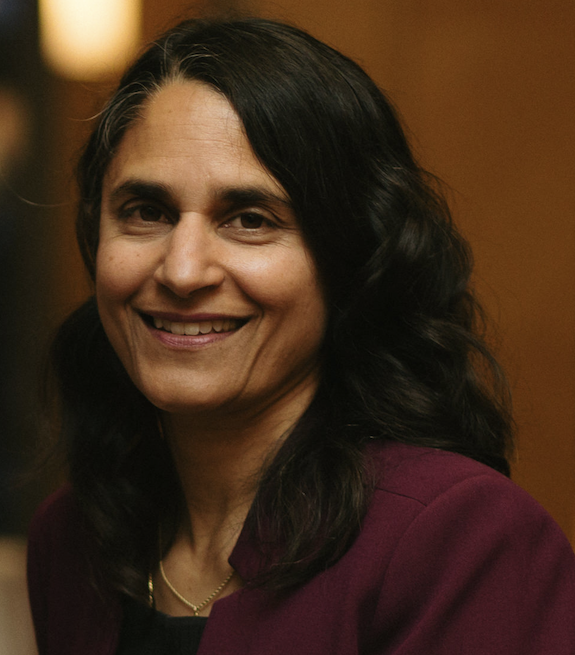
Sonia Anand
Faculty of Health Sciences
Associate Vice-President, Global Health
Professor, Division of Cardiology
Medicine, Cardiology; Health Research Methods, Evidence, and Impact
Valentina Antonipillai
Postdoctoral Fellow, Global Health
Bio
Valentina Antonipillai is a Postdoctoral Fellow in Global Health, Faculty of Health Sciences at McMaster University. As an interdisciplinary researcher, she is interested in examining complex health systems to inform policies that advance equitable health outcomes for vulnerable populations.
She received her PhD in Health Policy at McMaster University. Her dissertation research focused on moving towards inclusive migration and health policies by examining the effects of inequitable access to health and prescription drug insurance in Canada and across other high-income countries.
She also holds an MSc in Global Health (McMaster University) and Honours BSc in Health and Disease (University of Toronto). She employs mixed methodological approaches in her work, with an emphasis on political science, social epidemiology and intersectionality theory. Her current research focuses on the COVID-19 crisis in Long-Term Care, investigating the social, political, ethical and economic dimensions of resident care in Canada. In particular, she is examining how variations in regulatory/ structural compliance and organization across homes has influenced COVID-19 infection and mortality rates among residents.
Sandi Azab
Assistant Professor, Department of Medicine
Dr. Sandi Azab is assistant professor in Metabolomic Epidemiology and Global Heath, and a registered pharmacist with the Ontario College of Pharmacists. She received her doctoral degree in chemical biology from McMaster University and completed her postdoctoral training in epidemiology at the Chanchlani Research Centre, McMaster. Dr. Azab is also a recipient of the CIHR Research Excellence, Diversity, and Independence (REDI) Early Career Transition Award. She is an expert in metabolomics and biomarker discovery and leads multidisciplinary research focused on cardiovascular and metabolic disease and child and maternal health, within multiethnic Canadian and global cohorts.
Shrikant Bangdiwala
Faculty of Health Sciences
Professor, Health Research Methods, Evidence and Impact
Bio
Dr. Shrikant I. Bangdiwala, PhD is professor in the Department of Health Research Methods, Evidence and Impact and Statistics Director, Population Health Research Institute at McMaster University. He has extensive experience in the design, conduct and analysis of multi-center observational and experimental studies, having worked on clinical and community-based randomized controlled trials in congestive heart failure, cardiovascular risk factors, functional bowel disease, and obesity prevention.
Dr. Bangdiwala also has extensive experience as a member and chair of various data and safety monitoring boards (DSMB) and currently chairs the Multinational DSMB for the Division of AIDS at NIH, and is a member of the Gastrointestinal Drugs Advisory Committee of the FDA. His statistical research interests include nonparametric methods, methodology for clinical trials, reliability and validity of diagnostic tests, and graphical methods for descriptive analyses. He is well-known as the author of the agreement chart.
He is a former Fulbright ‘Senior Specialist’ in Global Public Health. He has taught extensively internationally, and holds faculty positions in universities in Chile, at the University of South Africa, and at Christian Medical College, Vellore, India.
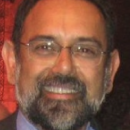
Shrikant Bangdiwala
Faculty of Health Sciences
Professor, Health Research Methods, Evidence and Impact
Andrea Baumann
Faculty of Health Sciences
Professor, School of Nursing
Bio
Andrea Baumann is Associate Vice-President of Global Health, Director of the WHO Collaborating Centre in Primary Care and Health Human Resources and Fellow in the Canadian Academy of Health Sciences. She is widely recognized for her leadership, research and innovation. She has guided significant initiatives that have had an impact on health systems and developed a transnational consortium model of graduate education that has received national and international awards. She has numerous peer-reviewed publications, including four books, and is considered a methodological expert in health systems, human resources and workforce integration.
Her work emphasizes the critical link between evidence, policy and practice. Foci include the effect of policy on the employment integration of internationally trained healthcare professionals, emerging trends in infectious disease and potential outcomes for health human resources and the influence of transdisciplinary collaboration on health education. Dr. Baumann was named to the Order of Canada in July 2018.
View profile on McMaster Experts
Books
Baumann, A., & Hinohara, S. (2017). Leadership in challenging times: 100 years of wisdom. Tokyo, Japan: Fuzambo International.
Selected Journal Articles and Publications
Baumann, A., Ross, D., Idriss-Wheeler, D. & Crea-Arsenio, M. (2017). Strategic practices for hiring, integrating and retaining internationally educated nurses: Employment manual. Nursing Health Services Research Unit (NHSRU), McMaster University, Hamilton, ON. Available: Strategic Practices for Hiring, Integrating, and Training Internationally Educated Nurses
Baumann, A., Crea-Arsenio, M., Hunsberger, M., Fleming-Carroll, B., & Keatings, M. (2019). Work readiness, transition, and integration: The challenge of specialty practice. Journal of Advanced Nursing, 75(4), 823-833. doi:10.1111/jan.13918
Berta, W., Laporte, A., Perreira, T., Ginsburg, L., Rohit Dass, A., Deber, R., Baumann, A., Bourgeault, I., Lum, J., Gamble, B., Pilkington, K., Haroun, V., & Neves, P. (2018). Relationships between work outcomes, work attitudes and work environments of health support workers in long term care and home & community care settings. Human Resources for Health, 16:15, 1-11. doi:10.1186/s12960-018-0277-9
Baumann, A., Hunsberger, M., Crea-Arsenio, M., Akhtar-Danesh, N., & Alameddine, M. (2018). A government policy to full-time nursing employment in Ontario, Canada: An evaluation. Health Policy, 122, 109-114. doi:10.1016/j.healthpol.2017.07.001
Baumann, A., Crea-Arsenio, M., Hunsberger, M., & Akhtar-Danesh, N. (2018). Policy to practice: Investment in transitioning new graduate nurses to the workplace. Journal of Nursing Management, 1-9.doi: 10.1111/jonm.12540
Antonipillai, V., Baumann, A., Hunter, A., Wahoush, O., & O’Shea, T. (2017). Impacts of the Interim Federal Health Program reforms: A stakeholder analysis of barriers to health care access and provision for refugees. Canadian Journal of Public Health, 108(4), e435–e441. doi:10.17269/cjph.108.5553
Distinctions
- Member of the Order of Canada
- Fellow in Canadian Academy of Health Science
- Award of Excellence for Exemplary Leadership from the Aga Khan University
- Canadian Bureau for International Education, Panorama Award for Outstanding Program

Andrea Baumann
Faculty of Health Sciences
Professor, School of Nursing
Paula Butler
Contractually-employed course instructor, Global Studies 710, Introduction to International Development

Paula Butler
Contractually-employed course instructor, Global Studies 710, Introduction to International Development
Mary Crea-Arsenio
Assistant Professor, Department of Medicine
Dr. Mary Crea-Arsenio is a health geographer and health system analyst who is making significant contributions to the wider discourse on immigration. Her program of research focuses on human migration, at-risk populations and health system improvement locally and globally and examines the vital link between immigration policy and employment as a social determinant of health among newcomers to Canada. Her work centres around Sustainable Development Goals 3 (Good Health and Well-Being) and 8 (Decent Work and Economic Growth). She holds a PhD in Health Geography from McMaster University and an MSc in Family Relations and Applied Nutrition from the University of Guelph. Dr. Crea-Arsenio has expertise in immigration and health policy, health of migrant workers, health systems and health human resource planning. She employs mixed methodological approaches, including systems mapping, geospatial analysis, appreciative inquiry and stakeholder analysis. Her current research focusing on the impact of immigration on small and mid-sized cities and how local systems create barriers to newcomer integration provides a critical understanding of key issues. Her most recent publication, a co-edited book with Dr. Bruce Newbold entitled, A research agenda for immigration settlement and adjustment, is forthcoming from Edward Elgar Publishing.
Russell de Souza
Faculty of Health Sciences
Associate Professor
Health Research Methods, Evidence, and Impact
View Bio
Dr. de Souza is a registered dietitian and nutritional epidemiologist. He received his doctoral degree in nutritional epidemiology from the Harvard School of Public Health. He completed post-doctoral training in systematic reviews and randomized trial methodology jointly at McMaster University and St. Michael’s Hospital (Toronto). His work focuses on dietary factors that influence chronic disease throughout the lifespan, with a particular interest in macronutrients, dietary patterns and cardiosvascular disease.

Russell de Souza
Faculty of Health Sciences
Associate Professor
Health Research Methods, Evidence, and Impact
Deborah DiLiberto
Faculty of Health Sciences
Director & Assistant Professor, Global Health Graduate Program
Bio
Deborah DiLiberto is is an interdisciplinary researcher with interests in the design and evaluation of health services interventions in low-resource settings. She joined the program as a postdoctoral Global Health Scholar after completing a PhD in Public Health and MSc in Public Health in Developing Countries at the UK’s renowned London School of Hygiene and Tropical Medicine (LSHTM). Her research has followed an interdisciplinary approach to examine different methodological approaches for understanding how – and for whom – health service interventions bring about changes in health and the provision of care.

Deborah DiLiberto
Faculty of Health Sciences
Director & Assistant Professor, Global Health Graduate Program
Alex Drossos
Assistant Professor, Psychiatry & Behavioural Neurosciences

Alex Drossos
Assistant Professor, Psychiatry & Behavioural Neurosciences
Sujane Kandasamy
Assistant Professor, Department of Medicine
Dr. Sujane Kandasamy is an intersectional environmentalist, knowledge translation scientist, and mixed methods researcher who studies early origins and prevention of chronic disease and chronic disease risk factors across the life-course, with a special focus on systemically under-represented communities such as persons of colour and newcomers. She is committed to the implementation of collaborative community-based partnerships, including research designs, to collect and deliver evidence-based knowledge using culturally-authentic vehicles. She holds a PhD in Health Research Methodology and has a background in physiology and anthropology. She also contributes much of her time to the charitable sector in advancing education and action in planetary health.
Chris Longo
Professor, Health Policy and Management

Chris Longo
Professor, Health Policy and Management
Ranu Malhi
General Pediatrician at McMaster Children’s Hospital affiliated with McMaster University.

Ranu Malhi
General Pediatrician at McMaster Children’s Hospital affiliated with McMaster University.
Gillian Mulvale
DeGroote School of Business
Associate Professor, Health Policy and Management

Gillian Mulvale
DeGroote School of Business
Associate Professor, Health Policy and Management
Amanda Sim
Assistant Professor, Psychiatry & Behavioural Neurosciences, Faculty of Health Sciences
Dr Sim’s program of research focuses on risk and resilience processes influencing the mental health and well-being of forcibly displaced children and families. She has a particular interest in community-driven mixed methods approaches to developing and evaluating family-based interventions to promote positive parenting and mental health among refugee and immigrant populations around the world. Dr Sim is a core member of the Global Parenting Initiative, a consortium of academic institutions and implementing organizations funded by The LEGO Foundation to develop and test innovative and scalable parenting interventions in low- and middle-income countries. She holds a DPhil (PhD) in Social Intervention from the University of Oxford and completed a postdoctoral fellowship at The Offord Centre for Child Studies at McMaster University. She previously worked at the International Rescue Committee implementing and evaluating child protection and development programs in Afghanistan, Liberia, Ethiopia, Thailand, and Lebanon.

Amanda Sim
Assistant Professor, Psychiatry & Behavioural Neurosciences, Faculty of Health Sciences
Zhou Xing
Faculty of Health Sciences
Professor, Pathology and Molecular Medicine
Bio
Dr. Xing’s research interests include cellular and molecular immune mechanisms of host defences against both acute and chronic infectious diseases, including those caused by Gram-negative bacteria, mycobacteria and viruses.
His research explores modulation of host defense by transgene expression of cytokines and other immune modulatory molecules and immune protection from tuberculosis by a new generation of vaccines, including attenuated organism based, bacterial plasmid DNA-based and viral-based vaccines.
View profile on the Department of Pathology and Molecular Medicine website

Zhou Xing
Faculty of Health Sciences
Professor, Pathology and Molecular Medicine
Rachel Zhou
Professor, Health, Aging & Society

Rachel Zhou
Professor, Health, Aging & Society
Sonia Anand
Faculty of Health Sciences
Associate Vice-President, Global Health
Professor, Division of Cardiology
Medicine, Cardiology; Health Research Methods, Evidence, and Impact
View Bio
Dr. Sonia Anand is a professor in the Department of Medicine, and the Director of the Population Genomics Program, at McMaster. She is also a senior scientist at the Population Health Research Institute at Hamilton Health Sciences. Dr. Anand holds a Canada Research Chair in Ethnic Diversity and Cardiovascular Disease, and the Heart and Stroke Foundation of Ontario/Michael G. DeGroote Chair in Population Health Research. In 2010, Dr. Anand was named among the top 100 women by the Women’s Executive Network for her accomplishments in research and medicine. Her current research focuses on environmental and genetic determinants of vascular disease in populations of varying ancestral origin, women and cardiovascular disease.
Sonia Anand
Faculty of Health Sciences
Associate Vice-President, Global Health
Professor, Division of Cardiology
Medicine, Cardiology; Health Research Methods, Evidence, and Impact
View Bio
Dr. Sonia Anand is a professor in the Department of Medicine, and the Director of the Population Genomics Program, at McMaster. She is also a senior scientist at the Population Health Research Institute at Hamilton Health Sciences. Dr. Anand holds a Canada Research Chair in Ethnic Diversity and Cardiovascular Disease, and the Heart and Stroke Foundation of Ontario/Michael G. DeGroote Chair in Population Health Research. In 2010, Dr. Anand was named among the top 100 women by the Women’s Executive Network for her accomplishments in research and medicine. Her current research focuses on environmental and genetic determinants of vascular disease in populations of varying ancestral origin, women and cardiovascular disease.
Valentina Antonipillai
Postdoctoral Fellow, Global Health
Bio
Valentina Antonipillai is a Postdoctoral Fellow in Global Health, Faculty of Health Sciences at McMaster University. As an interdisciplinary researcher, she is interested in examining complex health systems to inform policies that advance equitable health outcomes for vulnerable populations.
She received her PhD in Health Policy at McMaster University. Her dissertation research focused on moving towards inclusive migration and health policies by examining the effects of inequitable access to health and prescription drug insurance in Canada and across other high-income countries.
She also holds an MSc in Global Health (McMaster University) and Honours BSc in Health and Disease (University of Toronto). She employs mixed methodological approaches in her work, with an emphasis on political science, social epidemiology and intersectionality theory. Her current research focuses on the COVID-19 crisis in Long-Term Care, investigating the social, political, ethical and economic dimensions of resident care in Canada. In particular, she is examining how variations in regulatory/ structural compliance and organization across homes has influenced COVID-19 infection and mortality rates among residents.
Valentina Antonipillai
Postdoctoral Fellow, Global Health
Bio
Valentina Antonipillai is a Postdoctoral Fellow in Global Health, Faculty of Health Sciences at McMaster University. As an interdisciplinary researcher, she is interested in examining complex health systems to inform policies that advance equitable health outcomes for vulnerable populations.
She received her PhD in Health Policy at McMaster University. Her dissertation research focused on moving towards inclusive migration and health policies by examining the effects of inequitable access to health and prescription drug insurance in Canada and across other high-income countries.
She also holds an MSc in Global Health (McMaster University) and Honours BSc in Health and Disease (University of Toronto). She employs mixed methodological approaches in her work, with an emphasis on political science, social epidemiology and intersectionality theory. Her current research focuses on the COVID-19 crisis in Long-Term Care, investigating the social, political, ethical and economic dimensions of resident care in Canada. In particular, she is examining how variations in regulatory/ structural compliance and organization across homes has influenced COVID-19 infection and mortality rates among residents.
Sandi Azab
Assistant Professor, Department of Medicine
Dr. Sandi Azab is assistant professor in Metabolomic Epidemiology and Global Heath, and a registered pharmacist with the Ontario College of Pharmacists. She received her doctoral degree in chemical biology from McMaster University and completed her postdoctoral training in epidemiology at the Chanchlani Research Centre, McMaster. Dr. Azab is also a recipient of the CIHR Research Excellence, Diversity, and Independence (REDI) Early Career Transition Award. She is an expert in metabolomics and biomarker discovery and leads multidisciplinary research focused on cardiovascular and metabolic disease and child and maternal health, within multiethnic Canadian and global cohorts.
Sandi Azab
Assistant Professor, Department of Medicine
Dr. Sandi Azab is assistant professor in Metabolomic Epidemiology and Global Heath, and a registered pharmacist with the Ontario College of Pharmacists. She received her doctoral degree in chemical biology from McMaster University and completed her postdoctoral training in epidemiology at the Chanchlani Research Centre, McMaster. Dr. Azab is also a recipient of the CIHR Research Excellence, Diversity, and Independence (REDI) Early Career Transition Award. She is an expert in metabolomics and biomarker discovery and leads multidisciplinary research focused on cardiovascular and metabolic disease and child and maternal health, within multiethnic Canadian and global cohorts.
Shrikant Bangdiwala
Faculty of Health Sciences
Professor, Health Research Methods, Evidence and Impact
Bio
Dr. Shrikant I. Bangdiwala, PhD is professor in the Department of Health Research Methods, Evidence and Impact and Statistics Director, Population Health Research Institute at McMaster University. He has extensive experience in the design, conduct and analysis of multi-center observational and experimental studies, having worked on clinical and community-based randomized controlled trials in congestive heart failure, cardiovascular risk factors, functional bowel disease, and obesity prevention.
Dr. Bangdiwala also has extensive experience as a member and chair of various data and safety monitoring boards (DSMB) and currently chairs the Multinational DSMB for the Division of AIDS at NIH, and is a member of the Gastrointestinal Drugs Advisory Committee of the FDA. His statistical research interests include nonparametric methods, methodology for clinical trials, reliability and validity of diagnostic tests, and graphical methods for descriptive analyses. He is well-known as the author of the agreement chart.
He is a former Fulbright ‘Senior Specialist’ in Global Public Health. He has taught extensively internationally, and holds faculty positions in universities in Chile, at the University of South Africa, and at Christian Medical College, Vellore, India.
Shrikant Bangdiwala
Faculty of Health Sciences
Professor, Health Research Methods, Evidence and Impact
Bio
Dr. Shrikant I. Bangdiwala, PhD is professor in the Department of Health Research Methods, Evidence and Impact and Statistics Director, Population Health Research Institute at McMaster University. He has extensive experience in the design, conduct and analysis of multi-center observational and experimental studies, having worked on clinical and community-based randomized controlled trials in congestive heart failure, cardiovascular risk factors, functional bowel disease, and obesity prevention.
Dr. Bangdiwala also has extensive experience as a member and chair of various data and safety monitoring boards (DSMB) and currently chairs the Multinational DSMB for the Division of AIDS at NIH, and is a member of the Gastrointestinal Drugs Advisory Committee of the FDA. His statistical research interests include nonparametric methods, methodology for clinical trials, reliability and validity of diagnostic tests, and graphical methods for descriptive analyses. He is well-known as the author of the agreement chart.
He is a former Fulbright ‘Senior Specialist’ in Global Public Health. He has taught extensively internationally, and holds faculty positions in universities in Chile, at the University of South Africa, and at Christian Medical College, Vellore, India.
Andrea Baumann
Faculty of Health Sciences
Professor, School of Nursing
Bio
Andrea Baumann is Associate Vice-President of Global Health, Director of the WHO Collaborating Centre in Primary Care and Health Human Resources and Fellow in the Canadian Academy of Health Sciences. She is widely recognized for her leadership, research and innovation. She has guided significant initiatives that have had an impact on health systems and developed a transnational consortium model of graduate education that has received national and international awards. She has numerous peer-reviewed publications, including four books, and is considered a methodological expert in health systems, human resources and workforce integration.
Her work emphasizes the critical link between evidence, policy and practice. Foci include the effect of policy on the employment integration of internationally trained healthcare professionals, emerging trends in infectious disease and potential outcomes for health human resources and the influence of transdisciplinary collaboration on health education. Dr. Baumann was named to the Order of Canada in July 2018.
View profile on McMaster Experts
Books
Baumann, A., & Hinohara, S. (2017). Leadership in challenging times: 100 years of wisdom. Tokyo, Japan: Fuzambo International.
Selected Journal Articles and Publications
Baumann, A., Ross, D., Idriss-Wheeler, D. & Crea-Arsenio, M. (2017). Strategic practices for hiring, integrating and retaining internationally educated nurses: Employment manual. Nursing Health Services Research Unit (NHSRU), McMaster University, Hamilton, ON. Available: Strategic Practices for Hiring, Integrating, and Training Internationally Educated Nurses
Baumann, A., Crea-Arsenio, M., Hunsberger, M., Fleming-Carroll, B., & Keatings, M. (2019). Work readiness, transition, and integration: The challenge of specialty practice. Journal of Advanced Nursing, 75(4), 823-833. doi:10.1111/jan.13918
Berta, W., Laporte, A., Perreira, T., Ginsburg, L., Rohit Dass, A., Deber, R., Baumann, A., Bourgeault, I., Lum, J., Gamble, B., Pilkington, K., Haroun, V., & Neves, P. (2018). Relationships between work outcomes, work attitudes and work environments of health support workers in long term care and home & community care settings. Human Resources for Health, 16:15, 1-11. doi:10.1186/s12960-018-0277-9
Baumann, A., Hunsberger, M., Crea-Arsenio, M., Akhtar-Danesh, N., & Alameddine, M. (2018). A government policy to full-time nursing employment in Ontario, Canada: An evaluation. Health Policy, 122, 109-114. doi:10.1016/j.healthpol.2017.07.001
Baumann, A., Crea-Arsenio, M., Hunsberger, M., & Akhtar-Danesh, N. (2018). Policy to practice: Investment in transitioning new graduate nurses to the workplace. Journal of Nursing Management, 1-9.doi: 10.1111/jonm.12540
Antonipillai, V., Baumann, A., Hunter, A., Wahoush, O., & O’Shea, T. (2017). Impacts of the Interim Federal Health Program reforms: A stakeholder analysis of barriers to health care access and provision for refugees. Canadian Journal of Public Health, 108(4), e435–e441. doi:10.17269/cjph.108.5553
Distinctions
- Member of the Order of Canada
- Fellow in Canadian Academy of Health Science
- Award of Excellence for Exemplary Leadership from the Aga Khan University
- Canadian Bureau for International Education, Panorama Award for Outstanding Program
Andrea Baumann
Faculty of Health Sciences
Professor, School of Nursing
Bio
Andrea Baumann is Associate Vice-President of Global Health, Director of the WHO Collaborating Centre in Primary Care and Health Human Resources and Fellow in the Canadian Academy of Health Sciences. She is widely recognized for her leadership, research and innovation. She has guided significant initiatives that have had an impact on health systems and developed a transnational consortium model of graduate education that has received national and international awards. She has numerous peer-reviewed publications, including four books, and is considered a methodological expert in health systems, human resources and workforce integration.
Her work emphasizes the critical link between evidence, policy and practice. Foci include the effect of policy on the employment integration of internationally trained healthcare professionals, emerging trends in infectious disease and potential outcomes for health human resources and the influence of transdisciplinary collaboration on health education. Dr. Baumann was named to the Order of Canada in July 2018.
View profile on McMaster Experts
Books
Baumann, A., & Hinohara, S. (2017). Leadership in challenging times: 100 years of wisdom. Tokyo, Japan: Fuzambo International.
Selected Journal Articles and Publications
Baumann, A., Ross, D., Idriss-Wheeler, D. & Crea-Arsenio, M. (2017). Strategic practices for hiring, integrating and retaining internationally educated nurses: Employment manual. Nursing Health Services Research Unit (NHSRU), McMaster University, Hamilton, ON. Available: Strategic Practices for Hiring, Integrating, and Training Internationally Educated Nurses
Baumann, A., Crea-Arsenio, M., Hunsberger, M., Fleming-Carroll, B., & Keatings, M. (2019). Work readiness, transition, and integration: The challenge of specialty practice. Journal of Advanced Nursing, 75(4), 823-833. doi:10.1111/jan.13918
Berta, W., Laporte, A., Perreira, T., Ginsburg, L., Rohit Dass, A., Deber, R., Baumann, A., Bourgeault, I., Lum, J., Gamble, B., Pilkington, K., Haroun, V., & Neves, P. (2018). Relationships between work outcomes, work attitudes and work environments of health support workers in long term care and home & community care settings. Human Resources for Health, 16:15, 1-11. doi:10.1186/s12960-018-0277-9
Baumann, A., Hunsberger, M., Crea-Arsenio, M., Akhtar-Danesh, N., & Alameddine, M. (2018). A government policy to full-time nursing employment in Ontario, Canada: An evaluation. Health Policy, 122, 109-114. doi:10.1016/j.healthpol.2017.07.001
Baumann, A., Crea-Arsenio, M., Hunsberger, M., & Akhtar-Danesh, N. (2018). Policy to practice: Investment in transitioning new graduate nurses to the workplace. Journal of Nursing Management, 1-9.doi: 10.1111/jonm.12540
Antonipillai, V., Baumann, A., Hunter, A., Wahoush, O., & O’Shea, T. (2017). Impacts of the Interim Federal Health Program reforms: A stakeholder analysis of barriers to health care access and provision for refugees. Canadian Journal of Public Health, 108(4), e435–e441. doi:10.17269/cjph.108.5553
Distinctions
- Member of the Order of Canada
- Fellow in Canadian Academy of Health Science
- Award of Excellence for Exemplary Leadership from the Aga Khan University
- Canadian Bureau for International Education, Panorama Award for Outstanding Program
Paula Butler
Contractually-employed course instructor, Global Studies 710, Introduction to International Development
Paula Butler
Contractually-employed course instructor, Global Studies 710, Introduction to International Development
Mary Crea-Arsenio
Assistant Professor, Department of Medicine
Dr. Mary Crea-Arsenio is a health geographer and health system analyst who is making significant contributions to the wider discourse on immigration. Her program of research focuses on human migration, at-risk populations and health system improvement locally and globally and examines the vital link between immigration policy and employment as a social determinant of health among newcomers to Canada. Her work centres around Sustainable Development Goals 3 (Good Health and Well-Being) and 8 (Decent Work and Economic Growth). She holds a PhD in Health Geography from McMaster University and an MSc in Family Relations and Applied Nutrition from the University of Guelph. Dr. Crea-Arsenio has expertise in immigration and health policy, health of migrant workers, health systems and health human resource planning. She employs mixed methodological approaches, including systems mapping, geospatial analysis, appreciative inquiry and stakeholder analysis. Her current research focusing on the impact of immigration on small and mid-sized cities and how local systems create barriers to newcomer integration provides a critical understanding of key issues. Her most recent publication, a co-edited book with Dr. Bruce Newbold entitled, A research agenda for immigration settlement and adjustment, is forthcoming from Edward Elgar Publishing.
Mary Crea-Arsenio
Assistant Professor, Department of Medicine
Dr. Mary Crea-Arsenio is a health geographer and health system analyst who is making significant contributions to the wider discourse on immigration. Her program of research focuses on human migration, at-risk populations and health system improvement locally and globally and examines the vital link between immigration policy and employment as a social determinant of health among newcomers to Canada. Her work centres around Sustainable Development Goals 3 (Good Health and Well-Being) and 8 (Decent Work and Economic Growth). She holds a PhD in Health Geography from McMaster University and an MSc in Family Relations and Applied Nutrition from the University of Guelph. Dr. Crea-Arsenio has expertise in immigration and health policy, health of migrant workers, health systems and health human resource planning. She employs mixed methodological approaches, including systems mapping, geospatial analysis, appreciative inquiry and stakeholder analysis. Her current research focusing on the impact of immigration on small and mid-sized cities and how local systems create barriers to newcomer integration provides a critical understanding of key issues. Her most recent publication, a co-edited book with Dr. Bruce Newbold entitled, A research agenda for immigration settlement and adjustment, is forthcoming from Edward Elgar Publishing.
Russell de Souza
Faculty of Health Sciences
Associate Professor
Health Research Methods, Evidence, and Impact
View Bio
Dr. de Souza is a registered dietitian and nutritional epidemiologist. He received his doctoral degree in nutritional epidemiology from the Harvard School of Public Health. He completed post-doctoral training in systematic reviews and randomized trial methodology jointly at McMaster University and St. Michael’s Hospital (Toronto). His work focuses on dietary factors that influence chronic disease throughout the lifespan, with a particular interest in macronutrients, dietary patterns and cardiosvascular disease.
Russell de Souza
Faculty of Health Sciences
Associate Professor
Health Research Methods, Evidence, and Impact
View Bio
Dr. de Souza is a registered dietitian and nutritional epidemiologist. He received his doctoral degree in nutritional epidemiology from the Harvard School of Public Health. He completed post-doctoral training in systematic reviews and randomized trial methodology jointly at McMaster University and St. Michael’s Hospital (Toronto). His work focuses on dietary factors that influence chronic disease throughout the lifespan, with a particular interest in macronutrients, dietary patterns and cardiosvascular disease.
Deborah DiLiberto
Faculty of Health Sciences
Director & Assistant Professor, Global Health Graduate Program
Bio
Deborah DiLiberto is is an interdisciplinary researcher with interests in the design and evaluation of health services interventions in low-resource settings. She joined the program as a postdoctoral Global Health Scholar after completing a PhD in Public Health and MSc in Public Health in Developing Countries at the UK’s renowned London School of Hygiene and Tropical Medicine (LSHTM). Her research has followed an interdisciplinary approach to examine different methodological approaches for understanding how – and for whom – health service interventions bring about changes in health and the provision of care.
Deborah DiLiberto
Faculty of Health Sciences
Director & Assistant Professor, Global Health Graduate Program
Bio
Deborah DiLiberto is is an interdisciplinary researcher with interests in the design and evaluation of health services interventions in low-resource settings. She joined the program as a postdoctoral Global Health Scholar after completing a PhD in Public Health and MSc in Public Health in Developing Countries at the UK’s renowned London School of Hygiene and Tropical Medicine (LSHTM). Her research has followed an interdisciplinary approach to examine different methodological approaches for understanding how – and for whom – health service interventions bring about changes in health and the provision of care.
Alex Drossos
Assistant Professor, Psychiatry & Behavioural Neurosciences
Alex Drossos
Assistant Professor, Psychiatry & Behavioural Neurosciences
Sujane Kandasamy
Assistant Professor, Department of Medicine
Dr. Sujane Kandasamy is an intersectional environmentalist, knowledge translation scientist, and mixed methods researcher who studies early origins and prevention of chronic disease and chronic disease risk factors across the life-course, with a special focus on systemically under-represented communities such as persons of colour and newcomers. She is committed to the implementation of collaborative community-based partnerships, including research designs, to collect and deliver evidence-based knowledge using culturally-authentic vehicles. She holds a PhD in Health Research Methodology and has a background in physiology and anthropology. She also contributes much of her time to the charitable sector in advancing education and action in planetary health.
Sujane Kandasamy
Assistant Professor, Department of Medicine
Dr. Sujane Kandasamy is an intersectional environmentalist, knowledge translation scientist, and mixed methods researcher who studies early origins and prevention of chronic disease and chronic disease risk factors across the life-course, with a special focus on systemically under-represented communities such as persons of colour and newcomers. She is committed to the implementation of collaborative community-based partnerships, including research designs, to collect and deliver evidence-based knowledge using culturally-authentic vehicles. She holds a PhD in Health Research Methodology and has a background in physiology and anthropology. She also contributes much of her time to the charitable sector in advancing education and action in planetary health.
Chris Longo
Professor, Health Policy and Management
Chris Longo
Professor, Health Policy and Management
Ranu Malhi
General Pediatrician at McMaster Children’s Hospital affiliated with McMaster University.
Ranu Malhi
General Pediatrician at McMaster Children’s Hospital affiliated with McMaster University.
Gillian Mulvale
DeGroote School of Business
Associate Professor, Health Policy and Management
Gillian Mulvale
DeGroote School of Business
Associate Professor, Health Policy and Management
Amanda Sim
Assistant Professor, Psychiatry & Behavioural Neurosciences, Faculty of Health Sciences
Dr Sim’s program of research focuses on risk and resilience processes influencing the mental health and well-being of forcibly displaced children and families. She has a particular interest in community-driven mixed methods approaches to developing and evaluating family-based interventions to promote positive parenting and mental health among refugee and immigrant populations around the world. Dr Sim is a core member of the Global Parenting Initiative, a consortium of academic institutions and implementing organizations funded by The LEGO Foundation to develop and test innovative and scalable parenting interventions in low- and middle-income countries. She holds a DPhil (PhD) in Social Intervention from the University of Oxford and completed a postdoctoral fellowship at The Offord Centre for Child Studies at McMaster University. She previously worked at the International Rescue Committee implementing and evaluating child protection and development programs in Afghanistan, Liberia, Ethiopia, Thailand, and Lebanon.
Amanda Sim
Assistant Professor, Psychiatry & Behavioural Neurosciences, Faculty of Health Sciences
Dr Sim’s program of research focuses on risk and resilience processes influencing the mental health and well-being of forcibly displaced children and families. She has a particular interest in community-driven mixed methods approaches to developing and evaluating family-based interventions to promote positive parenting and mental health among refugee and immigrant populations around the world. Dr Sim is a core member of the Global Parenting Initiative, a consortium of academic institutions and implementing organizations funded by The LEGO Foundation to develop and test innovative and scalable parenting interventions in low- and middle-income countries. She holds a DPhil (PhD) in Social Intervention from the University of Oxford and completed a postdoctoral fellowship at The Offord Centre for Child Studies at McMaster University. She previously worked at the International Rescue Committee implementing and evaluating child protection and development programs in Afghanistan, Liberia, Ethiopia, Thailand, and Lebanon.
Zhou Xing
Faculty of Health Sciences
Professor, Pathology and Molecular Medicine
Bio
Dr. Xing’s research interests include cellular and molecular immune mechanisms of host defences against both acute and chronic infectious diseases, including those caused by Gram-negative bacteria, mycobacteria and viruses.
His research explores modulation of host defense by transgene expression of cytokines and other immune modulatory molecules and immune protection from tuberculosis by a new generation of vaccines, including attenuated organism based, bacterial plasmid DNA-based and viral-based vaccines.
View profile on the Department of Pathology and Molecular Medicine website
Zhou Xing
Faculty of Health Sciences
Professor, Pathology and Molecular Medicine
Bio
Dr. Xing’s research interests include cellular and molecular immune mechanisms of host defences against both acute and chronic infectious diseases, including those caused by Gram-negative bacteria, mycobacteria and viruses.
His research explores modulation of host defense by transgene expression of cytokines and other immune modulatory molecules and immune protection from tuberculosis by a new generation of vaccines, including attenuated organism based, bacterial plasmid DNA-based and viral-based vaccines.
View profile on the Department of Pathology and Molecular Medicine website
Rachel Zhou
Professor, Health, Aging & Society
Rachel Zhou
Professor, Health, Aging & Society
Affiliate Faculty
Information Box Group
Elizabeth Alvarez
Faculty of Health Sciences
Assistant Professor, Health Research Methods, Evidence and Impact

Elizabeth Alvarez
Faculty of Health Sciences
Assistant Professor, Health Research Methods, Evidence and Impact
Daniel Ambrosini
Psychiatry & Behavioural Neuroscience
Assistant Professor
Bio
Dr. Ambrosini is an Assistant Professor in the Department of Psychiatry and Behavioural Neurosciences at McMaster. Before arriving at McMaster, he was a postdoctoral fellow at Harvard Law School and a research lawyer with the Law Commission of Ontario. He was founding Co-Editor-in-Chief of the McGill Journal of Law & Health, lectured at Harvard and McGill, and worked with criminal defense firms in Quebec and Ontario. The topic of his doctoral dissertation explored clinical, ethical, and legal aspects of psychiatric advance directives and the role of autonomy for individuals with mental illness. He has taught across various faculties and departments of universities including medicine, psychology, law, business, and social work. As a barrister and solicitor of the Bar of Ontario, he has practiced law in forensic psychiatry, has been a senior lawyer of the Consent and Capacity Board, and operated in private law practice.

Daniel Ambrosini
Psychiatry & Behavioural Neuroscience
Assistant Professor
Dr. Vishwanath Baba
Professor, Human Resources & Management
Dr. Vishwanath Baba
Professor, Human Resources & Management
Ellen Badone
Religious Studies
Professor
Bio
Over the past three decades, my research has centred on experiences of social, emotional and bodily crisis as well as healing. My initial fieldwork, in 1983-84, in Brittany, France, focused on interpretations of death and dying. I was particularly interested in changes in Breton responses to death that had accompanied social change in this region since 1945. My research on death led me in two directions: anthropology of religion and medical anthropology. In the late 1980s, I worked on the relationships between alternative healing and the biomedical system in Brittany. In addition, I edited a volume of papers on the tensions between Catholic orthodoxy and popular definitions of religion in Europe. My dual focus on religion and healing inspired me to work on pilgrimage. In the 1990s, I did fieldwork on local pilgrimages in Brittany and on a Marian apparition shrine. More recently, I worked at Les Saintes-Maries de-la-Mer in southern France, a shrine that is particularly important for Roma pilgrims. From 2005-07, I was president of the Society for the Anthropology of Religion, a sub-section of the American Anthropological Association. In the summer of 2012, I participated in the Tro Breiz, a walking pilgrimage in Brittany that links the medieval cathedral towns of the region. Although I am still passionately interested in pilgrimage and other religious quests to understand the world, my current work deals with responses to existential crises evoked through encounters with aging, autism spectrum disorders and mental illness.
Laura Banfield
Earth, Environment & Society
PhD Candidate

Laura Banfield
Earth, Environment & Society
PhD Candidate
Neil Barr
DeGroote School of Business
Assistant Professor, Health Policy and Management

Neil Barr
DeGroote School of Business
Assistant Professor, Health Policy and Management
Marshall Beier
Political Science
Professor
Bio
Marshall Beier received his PhD in Political Science from York University and joined the Department of Political Science at McMaster University in 2000. He is Editor-in-Chief of the journal, Critical Studies on Security.
His teaching and research interests turn on the constitution of and contestation around political subjecthood. Much of this is rooted in critical approaches to security studies and international relations theory, in particular postcolonialism, poststructuralism, and feminist approaches. Established and ongoing areas of inquiry deal with intersections of childhoods and militarism, issues of child/youth rights and political subjecthood across various settings, visual and affective economies of children in abject circumstances, and imagined childhood as a technology of global governance. Other interests include issues of human security, weapons proliferation, arms control, and disarmament. As a 3M National Teaching Fellow and member of the Society for Teaching and Learning in Higher Education, he is also interested in pedagogy both in practice and as an area of research focus. He is active with and serves on the Faculty Advisory Committee of the McMaster Children and Youth University and carries out research on other such initiatives outside of North America. He has also conducted research on indigeneity in advanced settler colonial contexts, exploring tensions between Indigenous discourses of global politics and varied attempts by Indigenous people(s) to make their voices heard in the established international system and its attendant institutions.
He is currently leading a multi-year project on the militarization of childhood and another on child/youth rights and social/political participation. Among the outputs of the first project are an edited volume (reprinted in a paperback edition) and special issues of the journals Critical Studies on Security and Childhood. The second project deals with impediments to children’s exercise of rights both in local contexts and in connection with the United Nations Convention on the Rights of the Child, contributions from which include several articles in refereed journals. Related research considers issues of child/youth political subjecthood with particular emphasis on questions of responsibility pertaining to trauma visited on young people both within and beyond zones of conflict.
Drawing on insights from his theoretical work, the balance of his research agenda is marked by an interest in offering new perspectives on contemporary security issues. Projects in this vein have focused variously on ballistic missile defence, the movement to ban antipersonnel landmines, the ‘Revolution in Military Affairs,’ and emergent autonomous weapon systems.
Marshall is interested in supervising graduate students on topics related to Critical Security Studies, Critical Military Studies, and children/childhoods in global political perspective.
Zain Chagla
Faculty of Health Sciences
Assistant Professor, Division of Infectious Diseases
Bio
Zain Chagla is a Tutor in the Master of Science in Global Health program at McMaster University. An M.D. specializing in internal medicine, tropical medicine, and infectious diseases, he is Consultant Physician at St. Joseph’s Hospital and Hamilton Health Sciences, Assistant Professor of Medicine at McMaster University, and adjunct faculty at the University of Namibia in the Department of Medicine.
He also received his M.Sc from the London School of Hygiene and Tropical Medicine, and a Diploma in Tropical Medicine completed in Tanzania and Uganda through the London School of Hygiene and Tropical Medicine.
Research and clinical interests include antimicrobial stewardship, web/mobile technology and medical education, diagnostic ultrasound in resource poor settings, travel and tropical medicine, and transplant derived infections.
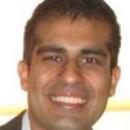
Zain Chagla
Faculty of Health Sciences
Assistant Professor, Division of Infectious Diseases
Nancy Doubleday
Faculty of Humanities
Associate Professor, Philosophy

Nancy Doubleday
Faculty of Humanities
Associate Professor, Philosophy
David Goldfarb
Pediatrics
Assistant Clinical Professor
David Goldfarb
Pediatrics
Assistant Clinical Professor
Emmanuel Guindon
Health Research Methods, Evidence & Impact
Associate Professor
Bio
Emmanuel Guindon is the inaugural Centre for Health Economics and Policy Analysis (CHEPA)/Ontario Ministry of Health and Long-Term Care Chair in Health Equity; an Associate Professor in the Department of Health Research Methods, Evidence, and Impact (HEI) and an associate member of the Department of Economics at McMaster University. Prior to joining McMaster University, Emmanuel was on Faculty at Université de Montréal and a staff economist at the World Health Organization in Geneva, Switzerland. Emmanuel is the recipient of a Rising Star Award from the Canadian Institutes of Health Research, Institute of Health Services and Policy Research, an Early Researcher Award from the Ontario Ministry of Research, Innovation and Science, and a Career development award in prevention from the Canadian Cancer Society. Emmanuel holds a PhD in Health Research Methodology from McMaster, an MA in economics from the University of Victoria and a BA in Economics from McGill University.

Emmanuel Guindon
Health Research Methods, Evidence & Impact
Associate Professor
Elif Günçe
Forensic Coordinator, International Committee of the Red Cross

Elif Günçe
Forensic Coordinator, International Committee of the Red Cross
Magdalena Janus
Faculty of Health Sciences
Professor, Psychiatry and Behavioural Neurosciences

Magdalena Janus
Faculty of Health Sciences
Professor, Psychiatry and Behavioural Neurosciences
Ameil Joseph
Associate Professor, School of Social Work
Dr. Joseph is interested in working with contributions from the perspectives of critical mental health, postcolonial theory, critical race theory, and critical disability studies, to study the historical production of ideas about difference, normalcy, sexuality, eugenics, race, ability and mental “illness” as they cohere, diverge, interdepend and perform within policy, law and practice. Dr. Joseph’s projects have looked at issues of social justice, violence, ethics, confluence, historiography and social work using complimentary theoretical and methodological frameworks to engage respectfully with the complexities of our human condition. Dr. Joseph comes to this work with over a decade of experience in the mental health field, in supportive housing, settlement, crisis respite, forensic assertive community treatment, community-based early intervention, and governance settings.
Lydia Kapiriri
Health, Aging, & Society
Associate Professor
Bio
For countries with limited health-care resources, setting priorities necessitates hard decisions. How does HIV/AIDS stack up against maternal health? Where does cancer treatment fit into the mix? What about emergency services?
Lydia Kapiriri studies the factors that influence government decisions on these types of issues. In theory, decision makers can access data of many types to ensure their resources help the largest number of people in the most efficient way possible. But in reality, political influences often subvert the principles of equity and social justice.
Much of Kapiriri’s research involves low-income countries with more obvious resource limitations. But every country has a limited health-care budget – countries with more resources face more demands. Whether it’s Uganda or Canada, every country makes choices and faces conflicts when setting health-care priorities.
Kapiriri’s research offers a critical perspective of resource allocation, questioning what factors other than evidence-based decision making must be unpacked in order to make improvements in healthcare systems. How can vulnerable or marginalized populations have a say in decisions? What role to international organizations like the WHO play in internal priority setting? What processes can help promote transparency and accountability?
For older people, these decisions can become even more complex: an aging population both places more demands on a health-care system, and also plays into prejudicial attitudes toward the elderly. Kapirir addresses these kinds of issues with rigorous fieldwork and astute analysis, driving toward processes that allow for the most equitable allocation of limited resources.

Lydia Kapiriri
Health, Aging, & Society
Associate Professor
Charu Kaushic
Pathology & Molecular Medicine
Professor
Bio
Dr. Kaushic teaches at the Undergraduate level within the Bachelor of Health Sciences Program. She coordinates the 3rd year immunology course and lectures in immunology and anatomy and physiology courses. Furthermore, she coordinates and teaches immunology courses within the Medical Sciences Graduate Program.
David Koff
Faculty of Health Sciences
Professor, Radiology
Bio
David Koff, MD FRCPC, is a professor of radiology and Chair of the Department of Radiology at McMaster University, and past Chief of Diagnostic Imaging at Hamilton Health Sciences. Founder and director of MIIRCAM, the Medical Imaging Informatics Research Centre at McMaster, he leads research projects on radiation risk, the validation of technology and applications of artificial intelligence (AI) to medical imaging. He is currently Chair of Canada Safe Imaging (CSI), an initiative he launched to promote radiation safety in Canada. CSI involves collaboration between Canadian universities and professional associations and is aligned with the Bonn Call-for-Action and major international initiatives.
For the last 20 years, Dr. Koff’s research has centred on the electronic communication and workflow integration of medical images, and he developed the Canadian standards on lossy compression. His current research interests focus on AI for aggregation of imaging and medical data, and medical applications of nanotechnology. He is co-founder of IHE Canada (Integrating the Healthcare Enterprise), a member of the IHE section of the Medical Informatics committee at the Radiological Society of North America (RSNA), and past co-Chair of the IHE International Radiology Planning Committee.
Dr. Koff has organized MIIT, the Medical Imaging Informatics and Teleradiology conference in Canada, for the past 14 years. He also teaches leadership in health care using the LEADS framework.

David Koff
Faculty of Health Sciences
Professor, Radiology
Mark Loeb
Pathology & Molecular Medicine
Professor
Bio
My research interests include epidemiologic and genomic population-based studies on viral infectious including influenza, West Nile, and dengue. Current projects include an NIH population genetics research program, a CIHR funded cluster randomized controlled trial to reduce spread of influenza by immunizing children in Hutterite colonies, and a CIHR funded influenza pandemic team grant to establish natural history as well as immunologic and genetic determinants of influenza infection.
Cynthia Lokker
Health Research Methods, Evidence & Impact
Assistant Professor
Bio
Cynthia Lokker is an Assistant Professor in the Department of Health Research Methods, Evidence and Impact (HEI) in the Faculty of Health Sciences at McMaster University. She holds a PhD in Biological Sciences from University of Windsor and an MSc in eHealth from McMaster University. She serves as the Health Sciences Faculty Lead for the Master of Science in eHealth program where she is an academic advisor to several students and teaches a core health science course on Fundamentals of eHealth and the Canadian Health Care System and a course in Research Methods in eHealth. She is a member of the Health Information Research Unit and McMaster Institute for Research on Aging, and a board member for Body Brave, a Hamilton-based charity advancing education and knowledge for eating disorder treatment and support. She has been involved with the local Hacking Health Hamilton group since 2016 (https://hhhamilton.ca/) and the publisher of her neighbourhood newspaper (https://www.thepointhamilton.com/).

Cynthia Lokker
Health Research Methods, Evidence & Impact
Assistant Professor
Beth Murray-Davis
Midwifery
Assistant Professor
Bio
Dr. Beth Murray-Davis is an Assistant Professor in the Midwifery Education Program and Department of Obstetrics and Gynecology. Her qualifications include a BA in Sociology (Guelph), a BHSc in Midwifery (McMaster), a MA in Health Profession Education (University of Toronto), and a PhD in Primary Health Care (University of Sheffield).
She holds a Hamilton Health Sciences Early Career Award, and is a co-PI for a CIHR Clinician Investigator Team Grant examining Non Communicable Diseases in Obstetrics. Her current research interests include pregnant peoples experiences of healthy nutrition and exercise during pregnancy and postpartum, fetal movement awareness, midwifery experiences of caring for complicated pregnancies, client and health care provider experiences of alternative models of practice for midwives, and client decision making about place of birth.
Dr. Murray-Davis has worked as a midwife with the Community Midwives of Hamilton since 2003. She is a recognized leader in research, education, and practice within the midwifery profession. She has contributed to the growth of the profession of midwifery through research capacity building, mentoring midwives, conducting and disseminating research, and she has led interprofessional teams of health care providers in various research and educational innovations such as the writing of the first Canadian midwifery textbook.
She has received academic awards including: the Hamilton Health Sciences New Investigator Fund (2012); the Society for Teaching and Learning in Higher Education Alan Blizzard Award (2012); a Canadian Institutes of Health Research Strategic Training Fellowship (2010); and a Social Sciences and Humanities Research Council of Canada Doctoral Award (2008).
Bruce Newbold
Faculty of Social Sciences
Professor, Geography & Earth Sciences
Bio
Bruce Newbold is director and professor in the School of Geography and Earth Sciences (SGES) at McMaster University in Hamilton, Ontario. His research interests focus on population issues as they relate to immigration, migration, health, and aging.
Recent research has focused on the role of migration in the development and transfer of human capital and income across space, commuting and sustainability questions, the income benefits associated with migration, immigrant health, and immigrant settlement processes.
View profile on the School of Geography & Earth Sciences website

Bruce Newbold
Faculty of Social Sciences
Professor, Geography & Earth Sciences
Elysee Nouvet
Health Research Methods, Evidence & Impact
Assistant Professor
Elysee Nouvet
Health Research Methods, Evidence & Impact
Assistant Professor
Robert O'Brien
Faculty of Social Sciences
Professor, Political Science
Bio
Robert O’Brien is a Professor in the Department of Political Science. He has published six books and over twenty journal articles and book chapters in the fields of international relations and global political economy.
Dr. O’Brien teaches undergraduate and graduate courses in global political economy and supervises graduate students interested in global civil society, global labour issues, international organization, global governance, and the politics of climate change. He is consulting editor for the journal Global Labour Journal Social.
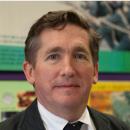
Robert O'Brien
Faculty of Social Sciences
Professor, Political Science
Timothy O'Shea
Pathology & Molecular Medicine
Associate Professor

Timothy O'Shea
Pathology & Molecular Medicine
Associate Professor
Tony Porter
Political Science
Professor
Bio
Tony Porter conducts research on business regulation and global governance, including especially financial regulation, private and hybrid public/private rulemaking, and the organizational effects in governance of technologies, numbers, and time. His books include States, Markets and Regimes in Global Finance (Macmillan 1993); Private Authority in International Affairs (SUNY Press, 1999), coedited, with A. Claire Cutler and Virginia Haufler; Technology, Governance and Political Conflict in International Industries(Routledge, 2002); Globalization and Finance (Polity Press, 2005); The Challenges of Global Business Authority: Democratic Renewal, Stalemate, or Decay? (SUNY Press, 2010), coedited with Karsten Ronit; Transnational Financial Associations and the Governance of Global Finance: Assembling Power and Wealth (RIPE/Routledge, 2013), coauthored with Heather McKeen-Edwards; and Transnational Financial Regulation after the Financial Crisis (RIPE/Routledge 2014, edited).
Alison Fox Robichaud
Medicine
Professor
Bio
Leukocyte recruitment is a specific cascade of molecules and events designed to bring the inflammatory cells to the site of infection or injury. My research examines the role of adhesion molecules, pro-inflammatory mediators and endogenous anti-inflammatory molecules in systemic inflammation. I am specifically interested in the factors that control leukocyte recruitment and clinical therapies, such as intravenous fluid or catheter materials.
I study the in vivo responses associated with septic shock, severe infection and gastrointestinal inflammation.
I use inflammatory models such as cecal ligation and perforation and local inflammatory mediators. We currently examine the liver microcirculation, the peritoneal surface and the bladder.
Herbert Schellhorn
Biology
Professor

Herbert Schellhorn
Biology
Professor
Lisa Schwartz
Faculty of Health Sciences
Professor, Health Research Methods, Evidence & Impact
Bio
Dr. Schwartz is Professor in the Department of Health Research Methods, Evidence & Impact (HEI), an Associate Member in the Department of Philosophy and a member of the Centre for Health Economics and Policy Analysis (CHEPA).
Dr. Schwartz has a number of research interests in health care ethics and the teaching of ethics in health care education, including global health ethics, research ethics and measurement and effectiveness of ethics education. She is currently PI on two studies related to Humanitarian Health Care Ethics and Ethics and Military Health Care.
View profile on the Department of Clinical Epidemiology & Biostatistics website

Lisa Schwartz
Faculty of Health Sciences
Professor, Health Research Methods, Evidence & Impact
Olga Skarlato
Institute on Globalization & the Human Condition
Contract & Sessional
Olga Skarlato
Institute on Globalization & the Human Condition
Contract & Sessional
Joseph Tan
Information Systems
Professor
Bio
Professor Tan specializes in the innovative design, implementation and diffusion of advancing e-technology to improve health services delivery system efficiencies and effectiveness. Serving as Editor-in-Chief of theInternational Journal of Health Information Systems & Informatics, IGI Global (www.igi-global.com), Professor Tan’s research interests cut across multiple disciplines, with emphasis on the application of strategic e-business and e-health models to improve health systems operational efficiencies, individual or group decision effectiveness, and community health behaviours. He teaches health IT project management and special topics in eHealth. His current research focuses on assessing the impact of decision aids and e-learning mechanisms for promoting healthy lifestyles and healthy aging behaviours for chronically ill individuals, groups and populations.
Ryan Van Lieshout
Faculty of Health Sciences
Associate Professor, Psychiatry & Behavioural Neurosciences

Ryan Van Lieshout
Faculty of Health Sciences
Associate Professor, Psychiatry & Behavioural Neurosciences
Olive Wahoush
Faculty of Health Sciences
Associate Professor, School of Nursing
Bio
Olive Wahoush is a recent graduate from the Faculty of Medicine, University of Toronto with a PhD in Health Policy Management & Evaluation (outcomes measurement & evaluation stream). She has extensive experience in international settings in nursing practice and leadership, education and research. Dr. Wahoush’s most recent international experience was a four-month placement where she was responsible for establishing the nursing department and assisting in the opening of a new 160-bed pediatric cancer centre in Cairo, Egypt.
Primary interests for education and research are in culture and health, as well as health system performance specifically in relation to child health, immigrant and refugee health, equity, and the application of knowledge and research to practice. She also has research interests in community engagement and capacity building.

Olive Wahoush
Faculty of Health Sciences
Associate Professor, School of Nursing
Elizabeth Alvarez
Faculty of Health Sciences
Assistant Professor, Health Research Methods, Evidence and Impact
Elizabeth Alvarez
Faculty of Health Sciences
Assistant Professor, Health Research Methods, Evidence and Impact
Daniel Ambrosini
Psychiatry & Behavioural Neuroscience
Assistant Professor
Bio
Dr. Ambrosini is an Assistant Professor in the Department of Psychiatry and Behavioural Neurosciences at McMaster. Before arriving at McMaster, he was a postdoctoral fellow at Harvard Law School and a research lawyer with the Law Commission of Ontario. He was founding Co-Editor-in-Chief of the McGill Journal of Law & Health, lectured at Harvard and McGill, and worked with criminal defense firms in Quebec and Ontario. The topic of his doctoral dissertation explored clinical, ethical, and legal aspects of psychiatric advance directives and the role of autonomy for individuals with mental illness. He has taught across various faculties and departments of universities including medicine, psychology, law, business, and social work. As a barrister and solicitor of the Bar of Ontario, he has practiced law in forensic psychiatry, has been a senior lawyer of the Consent and Capacity Board, and operated in private law practice.
Daniel Ambrosini
Psychiatry & Behavioural Neuroscience
Assistant Professor
Bio
Dr. Ambrosini is an Assistant Professor in the Department of Psychiatry and Behavioural Neurosciences at McMaster. Before arriving at McMaster, he was a postdoctoral fellow at Harvard Law School and a research lawyer with the Law Commission of Ontario. He was founding Co-Editor-in-Chief of the McGill Journal of Law & Health, lectured at Harvard and McGill, and worked with criminal defense firms in Quebec and Ontario. The topic of his doctoral dissertation explored clinical, ethical, and legal aspects of psychiatric advance directives and the role of autonomy for individuals with mental illness. He has taught across various faculties and departments of universities including medicine, psychology, law, business, and social work. As a barrister and solicitor of the Bar of Ontario, he has practiced law in forensic psychiatry, has been a senior lawyer of the Consent and Capacity Board, and operated in private law practice.
Dr. Vishwanath Baba
Professor, Human Resources & Management
Dr. Vishwanath Baba
Professor, Human Resources & Management
Ellen Badone
Religious Studies
Professor
Bio
Over the past three decades, my research has centred on experiences of social, emotional and bodily crisis as well as healing. My initial fieldwork, in 1983-84, in Brittany, France, focused on interpretations of death and dying. I was particularly interested in changes in Breton responses to death that had accompanied social change in this region since 1945. My research on death led me in two directions: anthropology of religion and medical anthropology. In the late 1980s, I worked on the relationships between alternative healing and the biomedical system in Brittany. In addition, I edited a volume of papers on the tensions between Catholic orthodoxy and popular definitions of religion in Europe. My dual focus on religion and healing inspired me to work on pilgrimage. In the 1990s, I did fieldwork on local pilgrimages in Brittany and on a Marian apparition shrine. More recently, I worked at Les Saintes-Maries de-la-Mer in southern France, a shrine that is particularly important for Roma pilgrims. From 2005-07, I was president of the Society for the Anthropology of Religion, a sub-section of the American Anthropological Association. In the summer of 2012, I participated in the Tro Breiz, a walking pilgrimage in Brittany that links the medieval cathedral towns of the region. Although I am still passionately interested in pilgrimage and other religious quests to understand the world, my current work deals with responses to existential crises evoked through encounters with aging, autism spectrum disorders and mental illness.
Ellen Badone
Religious Studies
Professor
Bio
Over the past three decades, my research has centred on experiences of social, emotional and bodily crisis as well as healing. My initial fieldwork, in 1983-84, in Brittany, France, focused on interpretations of death and dying. I was particularly interested in changes in Breton responses to death that had accompanied social change in this region since 1945. My research on death led me in two directions: anthropology of religion and medical anthropology. In the late 1980s, I worked on the relationships between alternative healing and the biomedical system in Brittany. In addition, I edited a volume of papers on the tensions between Catholic orthodoxy and popular definitions of religion in Europe. My dual focus on religion and healing inspired me to work on pilgrimage. In the 1990s, I did fieldwork on local pilgrimages in Brittany and on a Marian apparition shrine. More recently, I worked at Les Saintes-Maries de-la-Mer in southern France, a shrine that is particularly important for Roma pilgrims. From 2005-07, I was president of the Society for the Anthropology of Religion, a sub-section of the American Anthropological Association. In the summer of 2012, I participated in the Tro Breiz, a walking pilgrimage in Brittany that links the medieval cathedral towns of the region. Although I am still passionately interested in pilgrimage and other religious quests to understand the world, my current work deals with responses to existential crises evoked through encounters with aging, autism spectrum disorders and mental illness.
Laura Banfield
Earth, Environment & Society
PhD Candidate
Laura Banfield
Earth, Environment & Society
PhD Candidate
Neil Barr
DeGroote School of Business
Assistant Professor, Health Policy and Management
Neil Barr
DeGroote School of Business
Assistant Professor, Health Policy and Management
Marshall Beier
Political Science
Professor
Bio
Marshall Beier received his PhD in Political Science from York University and joined the Department of Political Science at McMaster University in 2000. He is Editor-in-Chief of the journal, Critical Studies on Security.
His teaching and research interests turn on the constitution of and contestation around political subjecthood. Much of this is rooted in critical approaches to security studies and international relations theory, in particular postcolonialism, poststructuralism, and feminist approaches. Established and ongoing areas of inquiry deal with intersections of childhoods and militarism, issues of child/youth rights and political subjecthood across various settings, visual and affective economies of children in abject circumstances, and imagined childhood as a technology of global governance. Other interests include issues of human security, weapons proliferation, arms control, and disarmament. As a 3M National Teaching Fellow and member of the Society for Teaching and Learning in Higher Education, he is also interested in pedagogy both in practice and as an area of research focus. He is active with and serves on the Faculty Advisory Committee of the McMaster Children and Youth University and carries out research on other such initiatives outside of North America. He has also conducted research on indigeneity in advanced settler colonial contexts, exploring tensions between Indigenous discourses of global politics and varied attempts by Indigenous people(s) to make their voices heard in the established international system and its attendant institutions.
He is currently leading a multi-year project on the militarization of childhood and another on child/youth rights and social/political participation. Among the outputs of the first project are an edited volume (reprinted in a paperback edition) and special issues of the journals Critical Studies on Security and Childhood. The second project deals with impediments to children’s exercise of rights both in local contexts and in connection with the United Nations Convention on the Rights of the Child, contributions from which include several articles in refereed journals. Related research considers issues of child/youth political subjecthood with particular emphasis on questions of responsibility pertaining to trauma visited on young people both within and beyond zones of conflict.
Drawing on insights from his theoretical work, the balance of his research agenda is marked by an interest in offering new perspectives on contemporary security issues. Projects in this vein have focused variously on ballistic missile defence, the movement to ban antipersonnel landmines, the ‘Revolution in Military Affairs,’ and emergent autonomous weapon systems.
Marshall is interested in supervising graduate students on topics related to Critical Security Studies, Critical Military Studies, and children/childhoods in global political perspective.
Marshall Beier
Political Science
Professor
Bio
Marshall Beier received his PhD in Political Science from York University and joined the Department of Political Science at McMaster University in 2000. He is Editor-in-Chief of the journal, Critical Studies on Security.
His teaching and research interests turn on the constitution of and contestation around political subjecthood. Much of this is rooted in critical approaches to security studies and international relations theory, in particular postcolonialism, poststructuralism, and feminist approaches. Established and ongoing areas of inquiry deal with intersections of childhoods and militarism, issues of child/youth rights and political subjecthood across various settings, visual and affective economies of children in abject circumstances, and imagined childhood as a technology of global governance. Other interests include issues of human security, weapons proliferation, arms control, and disarmament. As a 3M National Teaching Fellow and member of the Society for Teaching and Learning in Higher Education, he is also interested in pedagogy both in practice and as an area of research focus. He is active with and serves on the Faculty Advisory Committee of the McMaster Children and Youth University and carries out research on other such initiatives outside of North America. He has also conducted research on indigeneity in advanced settler colonial contexts, exploring tensions between Indigenous discourses of global politics and varied attempts by Indigenous people(s) to make their voices heard in the established international system and its attendant institutions.
He is currently leading a multi-year project on the militarization of childhood and another on child/youth rights and social/political participation. Among the outputs of the first project are an edited volume (reprinted in a paperback edition) and special issues of the journals Critical Studies on Security and Childhood. The second project deals with impediments to children’s exercise of rights both in local contexts and in connection with the United Nations Convention on the Rights of the Child, contributions from which include several articles in refereed journals. Related research considers issues of child/youth political subjecthood with particular emphasis on questions of responsibility pertaining to trauma visited on young people both within and beyond zones of conflict.
Drawing on insights from his theoretical work, the balance of his research agenda is marked by an interest in offering new perspectives on contemporary security issues. Projects in this vein have focused variously on ballistic missile defence, the movement to ban antipersonnel landmines, the ‘Revolution in Military Affairs,’ and emergent autonomous weapon systems.
Marshall is interested in supervising graduate students on topics related to Critical Security Studies, Critical Military Studies, and children/childhoods in global political perspective.
Zain Chagla
Faculty of Health Sciences
Assistant Professor, Division of Infectious Diseases
Bio
Zain Chagla is a Tutor in the Master of Science in Global Health program at McMaster University. An M.D. specializing in internal medicine, tropical medicine, and infectious diseases, he is Consultant Physician at St. Joseph’s Hospital and Hamilton Health Sciences, Assistant Professor of Medicine at McMaster University, and adjunct faculty at the University of Namibia in the Department of Medicine.
He also received his M.Sc from the London School of Hygiene and Tropical Medicine, and a Diploma in Tropical Medicine completed in Tanzania and Uganda through the London School of Hygiene and Tropical Medicine.
Research and clinical interests include antimicrobial stewardship, web/mobile technology and medical education, diagnostic ultrasound in resource poor settings, travel and tropical medicine, and transplant derived infections.
Zain Chagla
Faculty of Health Sciences
Assistant Professor, Division of Infectious Diseases
Bio
Zain Chagla is a Tutor in the Master of Science in Global Health program at McMaster University. An M.D. specializing in internal medicine, tropical medicine, and infectious diseases, he is Consultant Physician at St. Joseph’s Hospital and Hamilton Health Sciences, Assistant Professor of Medicine at McMaster University, and adjunct faculty at the University of Namibia in the Department of Medicine.
He also received his M.Sc from the London School of Hygiene and Tropical Medicine, and a Diploma in Tropical Medicine completed in Tanzania and Uganda through the London School of Hygiene and Tropical Medicine.
Research and clinical interests include antimicrobial stewardship, web/mobile technology and medical education, diagnostic ultrasound in resource poor settings, travel and tropical medicine, and transplant derived infections.
Nancy Doubleday
Faculty of Humanities
Associate Professor, Philosophy
Nancy Doubleday
Faculty of Humanities
Associate Professor, Philosophy
David Goldfarb
Pediatrics
Assistant Clinical Professor
David Goldfarb
Pediatrics
Assistant Clinical Professor
Emmanuel Guindon
Health Research Methods, Evidence & Impact
Associate Professor
Bio
Emmanuel Guindon is the inaugural Centre for Health Economics and Policy Analysis (CHEPA)/Ontario Ministry of Health and Long-Term Care Chair in Health Equity; an Associate Professor in the Department of Health Research Methods, Evidence, and Impact (HEI) and an associate member of the Department of Economics at McMaster University. Prior to joining McMaster University, Emmanuel was on Faculty at Université de Montréal and a staff economist at the World Health Organization in Geneva, Switzerland. Emmanuel is the recipient of a Rising Star Award from the Canadian Institutes of Health Research, Institute of Health Services and Policy Research, an Early Researcher Award from the Ontario Ministry of Research, Innovation and Science, and a Career development award in prevention from the Canadian Cancer Society. Emmanuel holds a PhD in Health Research Methodology from McMaster, an MA in economics from the University of Victoria and a BA in Economics from McGill University.
Emmanuel Guindon
Health Research Methods, Evidence & Impact
Associate Professor
Bio
Emmanuel Guindon is the inaugural Centre for Health Economics and Policy Analysis (CHEPA)/Ontario Ministry of Health and Long-Term Care Chair in Health Equity; an Associate Professor in the Department of Health Research Methods, Evidence, and Impact (HEI) and an associate member of the Department of Economics at McMaster University. Prior to joining McMaster University, Emmanuel was on Faculty at Université de Montréal and a staff economist at the World Health Organization in Geneva, Switzerland. Emmanuel is the recipient of a Rising Star Award from the Canadian Institutes of Health Research, Institute of Health Services and Policy Research, an Early Researcher Award from the Ontario Ministry of Research, Innovation and Science, and a Career development award in prevention from the Canadian Cancer Society. Emmanuel holds a PhD in Health Research Methodology from McMaster, an MA in economics from the University of Victoria and a BA in Economics from McGill University.
Elif Günçe
Forensic Coordinator, International Committee of the Red Cross
Elif Günçe
Forensic Coordinator, International Committee of the Red Cross
Magdalena Janus
Faculty of Health Sciences
Professor, Psychiatry and Behavioural Neurosciences
Magdalena Janus
Faculty of Health Sciences
Professor, Psychiatry and Behavioural Neurosciences
Ameil Joseph
Associate Professor, School of Social Work
Dr. Joseph is interested in working with contributions from the perspectives of critical mental health, postcolonial theory, critical race theory, and critical disability studies, to study the historical production of ideas about difference, normalcy, sexuality, eugenics, race, ability and mental “illness” as they cohere, diverge, interdepend and perform within policy, law and practice. Dr. Joseph’s projects have looked at issues of social justice, violence, ethics, confluence, historiography and social work using complimentary theoretical and methodological frameworks to engage respectfully with the complexities of our human condition. Dr. Joseph comes to this work with over a decade of experience in the mental health field, in supportive housing, settlement, crisis respite, forensic assertive community treatment, community-based early intervention, and governance settings.
Ameil Joseph
Associate Professor, School of Social Work
Dr. Joseph is interested in working with contributions from the perspectives of critical mental health, postcolonial theory, critical race theory, and critical disability studies, to study the historical production of ideas about difference, normalcy, sexuality, eugenics, race, ability and mental “illness” as they cohere, diverge, interdepend and perform within policy, law and practice. Dr. Joseph’s projects have looked at issues of social justice, violence, ethics, confluence, historiography and social work using complimentary theoretical and methodological frameworks to engage respectfully with the complexities of our human condition. Dr. Joseph comes to this work with over a decade of experience in the mental health field, in supportive housing, settlement, crisis respite, forensic assertive community treatment, community-based early intervention, and governance settings.
Lydia Kapiriri
Health, Aging, & Society
Associate Professor
Bio
For countries with limited health-care resources, setting priorities necessitates hard decisions. How does HIV/AIDS stack up against maternal health? Where does cancer treatment fit into the mix? What about emergency services?
Lydia Kapiriri studies the factors that influence government decisions on these types of issues. In theory, decision makers can access data of many types to ensure their resources help the largest number of people in the most efficient way possible. But in reality, political influences often subvert the principles of equity and social justice.
Much of Kapiriri’s research involves low-income countries with more obvious resource limitations. But every country has a limited health-care budget – countries with more resources face more demands. Whether it’s Uganda or Canada, every country makes choices and faces conflicts when setting health-care priorities.
Kapiriri’s research offers a critical perspective of resource allocation, questioning what factors other than evidence-based decision making must be unpacked in order to make improvements in healthcare systems. How can vulnerable or marginalized populations have a say in decisions? What role to international organizations like the WHO play in internal priority setting? What processes can help promote transparency and accountability?
For older people, these decisions can become even more complex: an aging population both places more demands on a health-care system, and also plays into prejudicial attitudes toward the elderly. Kapirir addresses these kinds of issues with rigorous fieldwork and astute analysis, driving toward processes that allow for the most equitable allocation of limited resources.
Lydia Kapiriri
Health, Aging, & Society
Associate Professor
Bio
For countries with limited health-care resources, setting priorities necessitates hard decisions. How does HIV/AIDS stack up against maternal health? Where does cancer treatment fit into the mix? What about emergency services?
Lydia Kapiriri studies the factors that influence government decisions on these types of issues. In theory, decision makers can access data of many types to ensure their resources help the largest number of people in the most efficient way possible. But in reality, political influences often subvert the principles of equity and social justice.
Much of Kapiriri’s research involves low-income countries with more obvious resource limitations. But every country has a limited health-care budget – countries with more resources face more demands. Whether it’s Uganda or Canada, every country makes choices and faces conflicts when setting health-care priorities.
Kapiriri’s research offers a critical perspective of resource allocation, questioning what factors other than evidence-based decision making must be unpacked in order to make improvements in healthcare systems. How can vulnerable or marginalized populations have a say in decisions? What role to international organizations like the WHO play in internal priority setting? What processes can help promote transparency and accountability?
For older people, these decisions can become even more complex: an aging population both places more demands on a health-care system, and also plays into prejudicial attitudes toward the elderly. Kapirir addresses these kinds of issues with rigorous fieldwork and astute analysis, driving toward processes that allow for the most equitable allocation of limited resources.
Charu Kaushic
Pathology & Molecular Medicine
Professor
Bio
Dr. Kaushic teaches at the Undergraduate level within the Bachelor of Health Sciences Program. She coordinates the 3rd year immunology course and lectures in immunology and anatomy and physiology courses. Furthermore, she coordinates and teaches immunology courses within the Medical Sciences Graduate Program.
Charu Kaushic
Pathology & Molecular Medicine
Professor
Bio
Dr. Kaushic teaches at the Undergraduate level within the Bachelor of Health Sciences Program. She coordinates the 3rd year immunology course and lectures in immunology and anatomy and physiology courses. Furthermore, she coordinates and teaches immunology courses within the Medical Sciences Graduate Program.
David Koff
Faculty of Health Sciences
Professor, Radiology
Bio
David Koff, MD FRCPC, is a professor of radiology and Chair of the Department of Radiology at McMaster University, and past Chief of Diagnostic Imaging at Hamilton Health Sciences. Founder and director of MIIRCAM, the Medical Imaging Informatics Research Centre at McMaster, he leads research projects on radiation risk, the validation of technology and applications of artificial intelligence (AI) to medical imaging. He is currently Chair of Canada Safe Imaging (CSI), an initiative he launched to promote radiation safety in Canada. CSI involves collaboration between Canadian universities and professional associations and is aligned with the Bonn Call-for-Action and major international initiatives.
For the last 20 years, Dr. Koff’s research has centred on the electronic communication and workflow integration of medical images, and he developed the Canadian standards on lossy compression. His current research interests focus on AI for aggregation of imaging and medical data, and medical applications of nanotechnology. He is co-founder of IHE Canada (Integrating the Healthcare Enterprise), a member of the IHE section of the Medical Informatics committee at the Radiological Society of North America (RSNA), and past co-Chair of the IHE International Radiology Planning Committee.
Dr. Koff has organized MIIT, the Medical Imaging Informatics and Teleradiology conference in Canada, for the past 14 years. He also teaches leadership in health care using the LEADS framework.
David Koff
Faculty of Health Sciences
Professor, Radiology
Bio
David Koff, MD FRCPC, is a professor of radiology and Chair of the Department of Radiology at McMaster University, and past Chief of Diagnostic Imaging at Hamilton Health Sciences. Founder and director of MIIRCAM, the Medical Imaging Informatics Research Centre at McMaster, he leads research projects on radiation risk, the validation of technology and applications of artificial intelligence (AI) to medical imaging. He is currently Chair of Canada Safe Imaging (CSI), an initiative he launched to promote radiation safety in Canada. CSI involves collaboration between Canadian universities and professional associations and is aligned with the Bonn Call-for-Action and major international initiatives.
For the last 20 years, Dr. Koff’s research has centred on the electronic communication and workflow integration of medical images, and he developed the Canadian standards on lossy compression. His current research interests focus on AI for aggregation of imaging and medical data, and medical applications of nanotechnology. He is co-founder of IHE Canada (Integrating the Healthcare Enterprise), a member of the IHE section of the Medical Informatics committee at the Radiological Society of North America (RSNA), and past co-Chair of the IHE International Radiology Planning Committee.
Dr. Koff has organized MIIT, the Medical Imaging Informatics and Teleradiology conference in Canada, for the past 14 years. He also teaches leadership in health care using the LEADS framework.
Mark Loeb
Pathology & Molecular Medicine
Professor
Bio
My research interests include epidemiologic and genomic population-based studies on viral infectious including influenza, West Nile, and dengue. Current projects include an NIH population genetics research program, a CIHR funded cluster randomized controlled trial to reduce spread of influenza by immunizing children in Hutterite colonies, and a CIHR funded influenza pandemic team grant to establish natural history as well as immunologic and genetic determinants of influenza infection.
Mark Loeb
Pathology & Molecular Medicine
Professor
Bio
My research interests include epidemiologic and genomic population-based studies on viral infectious including influenza, West Nile, and dengue. Current projects include an NIH population genetics research program, a CIHR funded cluster randomized controlled trial to reduce spread of influenza by immunizing children in Hutterite colonies, and a CIHR funded influenza pandemic team grant to establish natural history as well as immunologic and genetic determinants of influenza infection.
Cynthia Lokker
Health Research Methods, Evidence & Impact
Assistant Professor
Bio
Cynthia Lokker is an Assistant Professor in the Department of Health Research Methods, Evidence and Impact (HEI) in the Faculty of Health Sciences at McMaster University. She holds a PhD in Biological Sciences from University of Windsor and an MSc in eHealth from McMaster University. She serves as the Health Sciences Faculty Lead for the Master of Science in eHealth program where she is an academic advisor to several students and teaches a core health science course on Fundamentals of eHealth and the Canadian Health Care System and a course in Research Methods in eHealth. She is a member of the Health Information Research Unit and McMaster Institute for Research on Aging, and a board member for Body Brave, a Hamilton-based charity advancing education and knowledge for eating disorder treatment and support. She has been involved with the local Hacking Health Hamilton group since 2016 (https://hhhamilton.ca/) and the publisher of her neighbourhood newspaper (https://www.thepointhamilton.com/).
Cynthia Lokker
Health Research Methods, Evidence & Impact
Assistant Professor
Bio
Cynthia Lokker is an Assistant Professor in the Department of Health Research Methods, Evidence and Impact (HEI) in the Faculty of Health Sciences at McMaster University. She holds a PhD in Biological Sciences from University of Windsor and an MSc in eHealth from McMaster University. She serves as the Health Sciences Faculty Lead for the Master of Science in eHealth program where she is an academic advisor to several students and teaches a core health science course on Fundamentals of eHealth and the Canadian Health Care System and a course in Research Methods in eHealth. She is a member of the Health Information Research Unit and McMaster Institute for Research on Aging, and a board member for Body Brave, a Hamilton-based charity advancing education and knowledge for eating disorder treatment and support. She has been involved with the local Hacking Health Hamilton group since 2016 (https://hhhamilton.ca/) and the publisher of her neighbourhood newspaper (https://www.thepointhamilton.com/).
Beth Murray-Davis
Midwifery
Assistant Professor
Bio
Dr. Beth Murray-Davis is an Assistant Professor in the Midwifery Education Program and Department of Obstetrics and Gynecology. Her qualifications include a BA in Sociology (Guelph), a BHSc in Midwifery (McMaster), a MA in Health Profession Education (University of Toronto), and a PhD in Primary Health Care (University of Sheffield).
She holds a Hamilton Health Sciences Early Career Award, and is a co-PI for a CIHR Clinician Investigator Team Grant examining Non Communicable Diseases in Obstetrics. Her current research interests include pregnant peoples experiences of healthy nutrition and exercise during pregnancy and postpartum, fetal movement awareness, midwifery experiences of caring for complicated pregnancies, client and health care provider experiences of alternative models of practice for midwives, and client decision making about place of birth.
Dr. Murray-Davis has worked as a midwife with the Community Midwives of Hamilton since 2003. She is a recognized leader in research, education, and practice within the midwifery profession. She has contributed to the growth of the profession of midwifery through research capacity building, mentoring midwives, conducting and disseminating research, and she has led interprofessional teams of health care providers in various research and educational innovations such as the writing of the first Canadian midwifery textbook.
She has received academic awards including: the Hamilton Health Sciences New Investigator Fund (2012); the Society for Teaching and Learning in Higher Education Alan Blizzard Award (2012); a Canadian Institutes of Health Research Strategic Training Fellowship (2010); and a Social Sciences and Humanities Research Council of Canada Doctoral Award (2008).
Beth Murray-Davis
Midwifery
Assistant Professor
Bio
Dr. Beth Murray-Davis is an Assistant Professor in the Midwifery Education Program and Department of Obstetrics and Gynecology. Her qualifications include a BA in Sociology (Guelph), a BHSc in Midwifery (McMaster), a MA in Health Profession Education (University of Toronto), and a PhD in Primary Health Care (University of Sheffield).
She holds a Hamilton Health Sciences Early Career Award, and is a co-PI for a CIHR Clinician Investigator Team Grant examining Non Communicable Diseases in Obstetrics. Her current research interests include pregnant peoples experiences of healthy nutrition and exercise during pregnancy and postpartum, fetal movement awareness, midwifery experiences of caring for complicated pregnancies, client and health care provider experiences of alternative models of practice for midwives, and client decision making about place of birth.
Dr. Murray-Davis has worked as a midwife with the Community Midwives of Hamilton since 2003. She is a recognized leader in research, education, and practice within the midwifery profession. She has contributed to the growth of the profession of midwifery through research capacity building, mentoring midwives, conducting and disseminating research, and she has led interprofessional teams of health care providers in various research and educational innovations such as the writing of the first Canadian midwifery textbook.
She has received academic awards including: the Hamilton Health Sciences New Investigator Fund (2012); the Society for Teaching and Learning in Higher Education Alan Blizzard Award (2012); a Canadian Institutes of Health Research Strategic Training Fellowship (2010); and a Social Sciences and Humanities Research Council of Canada Doctoral Award (2008).
Bruce Newbold
Faculty of Social Sciences
Professor, Geography & Earth Sciences
Bio
Bruce Newbold is director and professor in the School of Geography and Earth Sciences (SGES) at McMaster University in Hamilton, Ontario. His research interests focus on population issues as they relate to immigration, migration, health, and aging.
Recent research has focused on the role of migration in the development and transfer of human capital and income across space, commuting and sustainability questions, the income benefits associated with migration, immigrant health, and immigrant settlement processes.
View profile on the School of Geography & Earth Sciences website
Bruce Newbold
Faculty of Social Sciences
Professor, Geography & Earth Sciences
Bio
Bruce Newbold is director and professor in the School of Geography and Earth Sciences (SGES) at McMaster University in Hamilton, Ontario. His research interests focus on population issues as they relate to immigration, migration, health, and aging.
Recent research has focused on the role of migration in the development and transfer of human capital and income across space, commuting and sustainability questions, the income benefits associated with migration, immigrant health, and immigrant settlement processes.
View profile on the School of Geography & Earth Sciences website
Elysee Nouvet
Health Research Methods, Evidence & Impact
Assistant Professor
Elysee Nouvet
Health Research Methods, Evidence & Impact
Assistant Professor
Robert O'Brien
Faculty of Social Sciences
Professor, Political Science
Bio
Robert O’Brien is a Professor in the Department of Political Science. He has published six books and over twenty journal articles and book chapters in the fields of international relations and global political economy.
Dr. O’Brien teaches undergraduate and graduate courses in global political economy and supervises graduate students interested in global civil society, global labour issues, international organization, global governance, and the politics of climate change. He is consulting editor for the journal Global Labour Journal Social.
Robert O'Brien
Faculty of Social Sciences
Professor, Political Science
Bio
Robert O’Brien is a Professor in the Department of Political Science. He has published six books and over twenty journal articles and book chapters in the fields of international relations and global political economy.
Dr. O’Brien teaches undergraduate and graduate courses in global political economy and supervises graduate students interested in global civil society, global labour issues, international organization, global governance, and the politics of climate change. He is consulting editor for the journal Global Labour Journal Social.
Timothy O'Shea
Pathology & Molecular Medicine
Associate Professor
Timothy O'Shea
Pathology & Molecular Medicine
Associate Professor
Tony Porter
Political Science
Professor
Bio
Tony Porter conducts research on business regulation and global governance, including especially financial regulation, private and hybrid public/private rulemaking, and the organizational effects in governance of technologies, numbers, and time. His books include States, Markets and Regimes in Global Finance (Macmillan 1993); Private Authority in International Affairs (SUNY Press, 1999), coedited, with A. Claire Cutler and Virginia Haufler; Technology, Governance and Political Conflict in International Industries(Routledge, 2002); Globalization and Finance (Polity Press, 2005); The Challenges of Global Business Authority: Democratic Renewal, Stalemate, or Decay? (SUNY Press, 2010), coedited with Karsten Ronit; Transnational Financial Associations and the Governance of Global Finance: Assembling Power and Wealth (RIPE/Routledge, 2013), coauthored with Heather McKeen-Edwards; and Transnational Financial Regulation after the Financial Crisis (RIPE/Routledge 2014, edited).
Tony Porter
Political Science
Professor
Bio
Tony Porter conducts research on business regulation and global governance, including especially financial regulation, private and hybrid public/private rulemaking, and the organizational effects in governance of technologies, numbers, and time. His books include States, Markets and Regimes in Global Finance (Macmillan 1993); Private Authority in International Affairs (SUNY Press, 1999), coedited, with A. Claire Cutler and Virginia Haufler; Technology, Governance and Political Conflict in International Industries(Routledge, 2002); Globalization and Finance (Polity Press, 2005); The Challenges of Global Business Authority: Democratic Renewal, Stalemate, or Decay? (SUNY Press, 2010), coedited with Karsten Ronit; Transnational Financial Associations and the Governance of Global Finance: Assembling Power and Wealth (RIPE/Routledge, 2013), coauthored with Heather McKeen-Edwards; and Transnational Financial Regulation after the Financial Crisis (RIPE/Routledge 2014, edited).
Alison Fox Robichaud
Medicine
Professor
Bio
Leukocyte recruitment is a specific cascade of molecules and events designed to bring the inflammatory cells to the site of infection or injury. My research examines the role of adhesion molecules, pro-inflammatory mediators and endogenous anti-inflammatory molecules in systemic inflammation. I am specifically interested in the factors that control leukocyte recruitment and clinical therapies, such as intravenous fluid or catheter materials.
I study the in vivo responses associated with septic shock, severe infection and gastrointestinal inflammation.
I use inflammatory models such as cecal ligation and perforation and local inflammatory mediators. We currently examine the liver microcirculation, the peritoneal surface and the bladder.
Alison Fox Robichaud
Medicine
Professor
Bio
Leukocyte recruitment is a specific cascade of molecules and events designed to bring the inflammatory cells to the site of infection or injury. My research examines the role of adhesion molecules, pro-inflammatory mediators and endogenous anti-inflammatory molecules in systemic inflammation. I am specifically interested in the factors that control leukocyte recruitment and clinical therapies, such as intravenous fluid or catheter materials.
I study the in vivo responses associated with septic shock, severe infection and gastrointestinal inflammation.
I use inflammatory models such as cecal ligation and perforation and local inflammatory mediators. We currently examine the liver microcirculation, the peritoneal surface and the bladder.
Herbert Schellhorn
Biology
Professor
Herbert Schellhorn
Biology
Professor
Lisa Schwartz
Faculty of Health Sciences
Professor, Health Research Methods, Evidence & Impact
Bio
Dr. Schwartz is Professor in the Department of Health Research Methods, Evidence & Impact (HEI), an Associate Member in the Department of Philosophy and a member of the Centre for Health Economics and Policy Analysis (CHEPA).
Dr. Schwartz has a number of research interests in health care ethics and the teaching of ethics in health care education, including global health ethics, research ethics and measurement and effectiveness of ethics education. She is currently PI on two studies related to Humanitarian Health Care Ethics and Ethics and Military Health Care.
View profile on the Department of Clinical Epidemiology & Biostatistics website
Lisa Schwartz
Faculty of Health Sciences
Professor, Health Research Methods, Evidence & Impact
Bio
Dr. Schwartz is Professor in the Department of Health Research Methods, Evidence & Impact (HEI), an Associate Member in the Department of Philosophy and a member of the Centre for Health Economics and Policy Analysis (CHEPA).
Dr. Schwartz has a number of research interests in health care ethics and the teaching of ethics in health care education, including global health ethics, research ethics and measurement and effectiveness of ethics education. She is currently PI on two studies related to Humanitarian Health Care Ethics and Ethics and Military Health Care.
View profile on the Department of Clinical Epidemiology & Biostatistics website
Olga Skarlato
Institute on Globalization & the Human Condition
Contract & Sessional
Olga Skarlato
Institute on Globalization & the Human Condition
Contract & Sessional
Joseph Tan
Information Systems
Professor
Bio
Professor Tan specializes in the innovative design, implementation and diffusion of advancing e-technology to improve health services delivery system efficiencies and effectiveness. Serving as Editor-in-Chief of theInternational Journal of Health Information Systems & Informatics, IGI Global (www.igi-global.com), Professor Tan’s research interests cut across multiple disciplines, with emphasis on the application of strategic e-business and e-health models to improve health systems operational efficiencies, individual or group decision effectiveness, and community health behaviours. He teaches health IT project management and special topics in eHealth. His current research focuses on assessing the impact of decision aids and e-learning mechanisms for promoting healthy lifestyles and healthy aging behaviours for chronically ill individuals, groups and populations.
Joseph Tan
Information Systems
Professor
Bio
Professor Tan specializes in the innovative design, implementation and diffusion of advancing e-technology to improve health services delivery system efficiencies and effectiveness. Serving as Editor-in-Chief of theInternational Journal of Health Information Systems & Informatics, IGI Global (www.igi-global.com), Professor Tan’s research interests cut across multiple disciplines, with emphasis on the application of strategic e-business and e-health models to improve health systems operational efficiencies, individual or group decision effectiveness, and community health behaviours. He teaches health IT project management and special topics in eHealth. His current research focuses on assessing the impact of decision aids and e-learning mechanisms for promoting healthy lifestyles and healthy aging behaviours for chronically ill individuals, groups and populations.
Ryan Van Lieshout
Faculty of Health Sciences
Associate Professor, Psychiatry & Behavioural Neurosciences
Ryan Van Lieshout
Faculty of Health Sciences
Associate Professor, Psychiatry & Behavioural Neurosciences
Olive Wahoush
Faculty of Health Sciences
Associate Professor, School of Nursing
Bio
Olive Wahoush is a recent graduate from the Faculty of Medicine, University of Toronto with a PhD in Health Policy Management & Evaluation (outcomes measurement & evaluation stream). She has extensive experience in international settings in nursing practice and leadership, education and research. Dr. Wahoush’s most recent international experience was a four-month placement where she was responsible for establishing the nursing department and assisting in the opening of a new 160-bed pediatric cancer centre in Cairo, Egypt.
Primary interests for education and research are in culture and health, as well as health system performance specifically in relation to child health, immigrant and refugee health, equity, and the application of knowledge and research to practice. She also has research interests in community engagement and capacity building.
Olive Wahoush
Faculty of Health Sciences
Associate Professor, School of Nursing
Bio
Olive Wahoush is a recent graduate from the Faculty of Medicine, University of Toronto with a PhD in Health Policy Management & Evaluation (outcomes measurement & evaluation stream). She has extensive experience in international settings in nursing practice and leadership, education and research. Dr. Wahoush’s most recent international experience was a four-month placement where she was responsible for establishing the nursing department and assisting in the opening of a new 160-bed pediatric cancer centre in Cairo, Egypt.
Primary interests for education and research are in culture and health, as well as health system performance specifically in relation to child health, immigrant and refugee health, equity, and the application of knowledge and research to practice. She also has research interests in community engagement and capacity building.
Emeritus
Information Box Group
Norman Archer
DeGroote School of Business
Professor Emeritus, Information Systems
Bio
Norman Archer’s research interests lie in the adoption and use of electronic health records, including issues of interoperability, electronic medical record system adoption by physicians, and personal health record systems for consumers. He and his graduate students also study related issues in change management and project management, in addition to electronic business and identity theft.
He is currently engaged in national surveys to evaluate perceptions among both physicians and consumers of the adoption and value of electronic records.
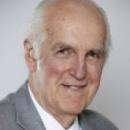
Norman Archer
DeGroote School of Business
Professor Emeritus, Information Systems
Harry Shannon
Faculty of Health Sciences
Professor Emeritus, Health Research Methods, Evidence and Impact
Bio
Dr. Shannon’s research interests have included workplace health and safety, specifically the role of organizational factors and interventions to create safe workplaces. He is currently chair of the Methodology Working Group for the Canadian Longitudinal Study on Aging. He is involved in several global health projects, including surveys in Lebanon, Palestine and Haiti.
View profile on the Department of Clinical Epidemiology & Biostatistics website

Harry Shannon
Faculty of Health Sciences
Professor Emeritus, Health Research Methods, Evidence and Impact
Norman Archer
DeGroote School of Business
Professor Emeritus, Information Systems
Bio
Norman Archer’s research interests lie in the adoption and use of electronic health records, including issues of interoperability, electronic medical record system adoption by physicians, and personal health record systems for consumers. He and his graduate students also study related issues in change management and project management, in addition to electronic business and identity theft.
He is currently engaged in national surveys to evaluate perceptions among both physicians and consumers of the adoption and value of electronic records.
Norman Archer
DeGroote School of Business
Professor Emeritus, Information Systems
Bio
Norman Archer’s research interests lie in the adoption and use of electronic health records, including issues of interoperability, electronic medical record system adoption by physicians, and personal health record systems for consumers. He and his graduate students also study related issues in change management and project management, in addition to electronic business and identity theft.
He is currently engaged in national surveys to evaluate perceptions among both physicians and consumers of the adoption and value of electronic records.
Harry Shannon
Faculty of Health Sciences
Professor Emeritus, Health Research Methods, Evidence and Impact
Bio
Dr. Shannon’s research interests have included workplace health and safety, specifically the role of organizational factors and interventions to create safe workplaces. He is currently chair of the Methodology Working Group for the Canadian Longitudinal Study on Aging. He is involved in several global health projects, including surveys in Lebanon, Palestine and Haiti.
View profile on the Department of Clinical Epidemiology & Biostatistics website
Harry Shannon
Faculty of Health Sciences
Professor Emeritus, Health Research Methods, Evidence and Impact
Bio
Dr. Shannon’s research interests have included workplace health and safety, specifically the role of organizational factors and interventions to create safe workplaces. He is currently chair of the Methodology Working Group for the Canadian Longitudinal Study on Aging. He is involved in several global health projects, including surveys in Lebanon, Palestine and Haiti.
View profile on the Department of Clinical Epidemiology & Biostatistics website
Staff
Information Box Group
Sue Barclay
MSc Global Health Program
Instructor/Tutor
Bio
Sue Barclay has managed large international development projects in Africa and Papua New Guinea. Her areas of interest include e-learning, project management and the social determinants of health in developing countries. She has done consulting work in the area of population health in a number of African countries and is currently managing a randomized control trial study for a local e-health organization. Sue coordinates the annual India Learning Symposium for the Global Health Program, working with colleagues at Maastricht University, Manipal Academy of Higher Education and Ahfad University for Women.
Halina Connor
Faculty of Health Sciences
Associate Assistant to the Associate V-P, Global Health
Halina Connor
Faculty of Health Sciences
Associate Assistant to the Associate V-P, Global Health
Dr Mary Crea
Academic Advisor
Faculty of Health Sciences, McMaster University

Dr Mary Crea
Academic Advisor
Faculty of Health Sciences, McMaster University
Dr Sonya de Laat
Faculty of Health Sciences
Research Associate
Bio
Sonya de Laat is the MSc Global Health program’s Academic Program Advisor and Curriculum Coordinator. She holds a BA and MA, both in Anthropology, from McMaster and a PhD in Media Studies from Western University.
de Laat was the MSc Global Health program’s recruitment and admissions officer from 2010-2012 and has worked as a research co-ordinator at the university since 2005. Prior to returning to the MSc Global Health program, de Laat held the position of post-doctoral fellow in Humanitarian Health Ethics, working under Lisa Schwartz, McMaster’s Arnold L. Johnson Chair in Health Care Ethics.
de Laat’s research interests span visual histories of humanitarian action, humanitarian health ethics, and visual research methods. She is particularly interested in the role of photography in mediating social relations, and in applying historical thinking to contemporary issues in humanitarian action and global health.
de Laat is an active member of the Canadian Network on Humanitarian Histories (CNHH) and Humanitarian Health Ethics Network (HumEthNet).

Dr Sonya de Laat
Faculty of Health Sciences
Research Associate
Andreea Predoiu
Global Health Office
Research Assistant II
Andreea Predoiu
Global Health Office
Research Assistant II
Victoria Smith
Global Health Office
Research Assistant III
Victoria Smith
Global Health Office
Research Assistant III
Sue Barclay
MSc Global Health Program
Instructor/Tutor
Bio
Sue Barclay has managed large international development projects in Africa and Papua New Guinea. Her areas of interest include e-learning, project management and the social determinants of health in developing countries. She has done consulting work in the area of population health in a number of African countries and is currently managing a randomized control trial study for a local e-health organization. Sue coordinates the annual India Learning Symposium for the Global Health Program, working with colleagues at Maastricht University, Manipal Academy of Higher Education and Ahfad University for Women.
Sue Barclay
MSc Global Health Program
Instructor/Tutor
Bio
Sue Barclay has managed large international development projects in Africa and Papua New Guinea. Her areas of interest include e-learning, project management and the social determinants of health in developing countries. She has done consulting work in the area of population health in a number of African countries and is currently managing a randomized control trial study for a local e-health organization. Sue coordinates the annual India Learning Symposium for the Global Health Program, working with colleagues at Maastricht University, Manipal Academy of Higher Education and Ahfad University for Women.
Halina Connor
Faculty of Health Sciences
Associate Assistant to the Associate V-P, Global Health
Halina Connor
Faculty of Health Sciences
Associate Assistant to the Associate V-P, Global Health
Dr Mary Crea
Academic Advisor
Faculty of Health Sciences, McMaster University
Dr Mary Crea
Academic Advisor
Faculty of Health Sciences, McMaster University
Dr Sonya de Laat
Faculty of Health Sciences
Research Associate
Bio
Sonya de Laat is the MSc Global Health program’s Academic Program Advisor and Curriculum Coordinator. She holds a BA and MA, both in Anthropology, from McMaster and a PhD in Media Studies from Western University.
de Laat was the MSc Global Health program’s recruitment and admissions officer from 2010-2012 and has worked as a research co-ordinator at the university since 2005. Prior to returning to the MSc Global Health program, de Laat held the position of post-doctoral fellow in Humanitarian Health Ethics, working under Lisa Schwartz, McMaster’s Arnold L. Johnson Chair in Health Care Ethics.
de Laat’s research interests span visual histories of humanitarian action, humanitarian health ethics, and visual research methods. She is particularly interested in the role of photography in mediating social relations, and in applying historical thinking to contemporary issues in humanitarian action and global health.
de Laat is an active member of the Canadian Network on Humanitarian Histories (CNHH) and Humanitarian Health Ethics Network (HumEthNet).
Dr Sonya de Laat
Faculty of Health Sciences
Research Associate
Bio
Sonya de Laat is the MSc Global Health program’s Academic Program Advisor and Curriculum Coordinator. She holds a BA and MA, both in Anthropology, from McMaster and a PhD in Media Studies from Western University.
de Laat was the MSc Global Health program’s recruitment and admissions officer from 2010-2012 and has worked as a research co-ordinator at the university since 2005. Prior to returning to the MSc Global Health program, de Laat held the position of post-doctoral fellow in Humanitarian Health Ethics, working under Lisa Schwartz, McMaster’s Arnold L. Johnson Chair in Health Care Ethics.
de Laat’s research interests span visual histories of humanitarian action, humanitarian health ethics, and visual research methods. She is particularly interested in the role of photography in mediating social relations, and in applying historical thinking to contemporary issues in humanitarian action and global health.
de Laat is an active member of the Canadian Network on Humanitarian Histories (CNHH) and Humanitarian Health Ethics Network (HumEthNet).
Andreea Predoiu
Global Health Office
Research Assistant II
Andreea Predoiu
Global Health Office
Research Assistant II
Victoria Smith
Global Health Office
Research Assistant III
Victoria Smith
Global Health Office
Research Assistant III
















